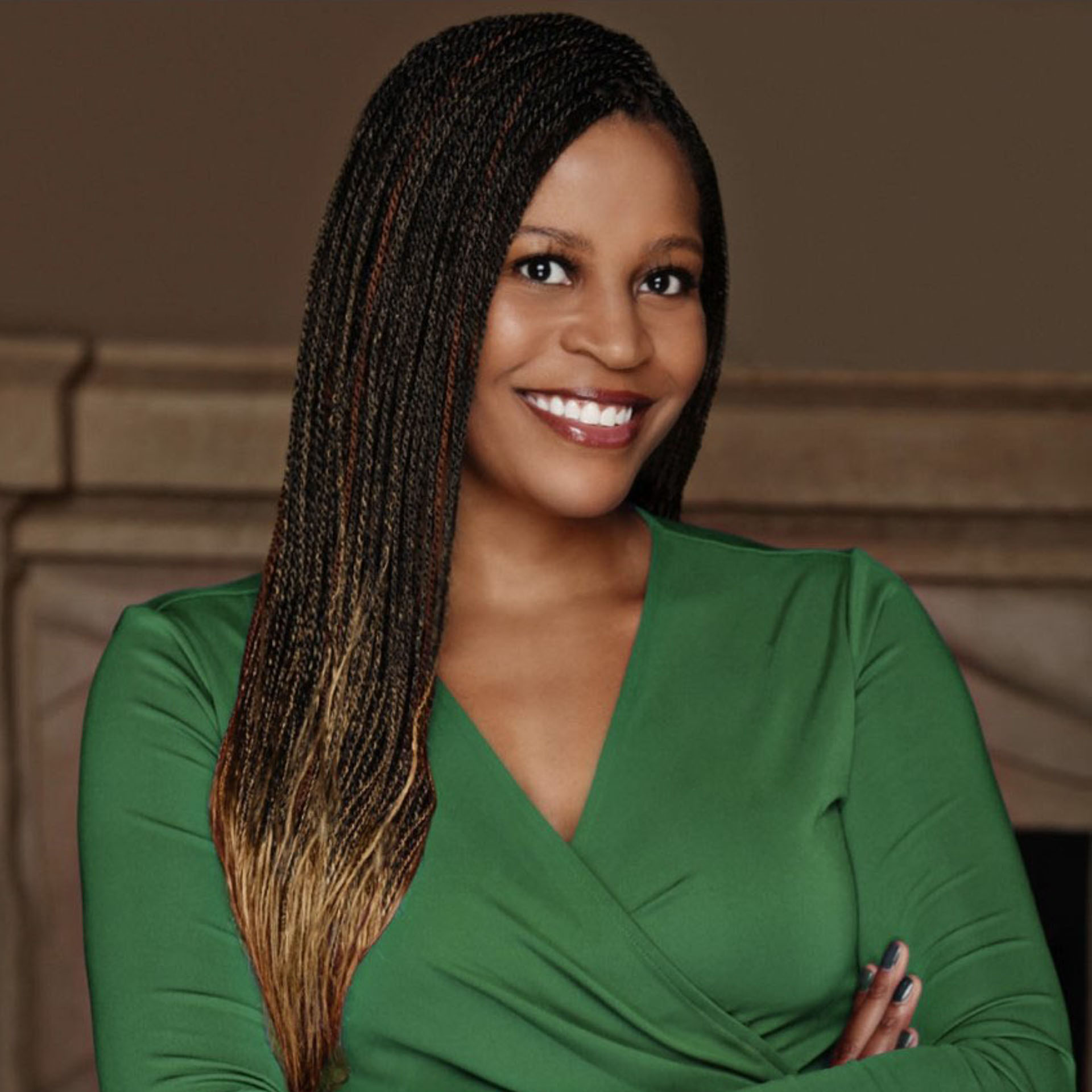On this episode of EJBTalks Stuart Shapiro welcomes Professor Jylana Sheats, instructor for the course Culture and Health in Bloustein’s undergraduate program. They discuss her early interest in connecting behaviors and culture to health issues that led to her career in academia studying the social determinants of health. Professor Sheats talks about the importance of recognizing and training the medical community early and often regarding cultural competency, not only to shed light on how cultural influences affect health but also to help eliminate health disparities. The two also discuss the pandemic and some surprising, but not necessarily negative, effects it has had on health and cultural behaviors.
Stuart Shapiro
Welcome to EJB Talks. I’m Stuart Shapiro, the Associate Dean of Faculty at the Bloustein School, and the purpose of this podcast is to highlight the work my colleagues in the fields of policy, planning and health are doing to make the world, the country, and New Jersey a better place.
Today, we have Professor Jylana Sheats, who teaches our undergraduate culture and health class, and also works at the See Change Institute. Welcome to the podcast. Jylana.
Jylana Sheats
Hi. Thank you for having me.
Stuart Shapiro
We’re very happy to have you here. I see that your PhD. is in health behavior. Can you talk a little bit about which behaviors you focused your work on? And why you decided to take your career and research in this direction?
Jylana Sheats
Yes, that’s a great question. So I grew up in the southern United States. And I didn’t know this at the time, but at an early age, I noticed that people ate unhealthy foods people like to talk about, you know, soul food. And they were overweight or obese. Again, I didn’t know what it was. And I saw connections between health, so lots of heart disease, lots of diabetes, and overweight and obesity. Again, not knowing what this was, I saw connections between that and their eating behaviors, and also physical activity. And so I wanted to understand those behaviors, I wanted to understand health.
And so from I’d say, high school, and the rest of my academic career into my Ph.D., I studied eating and physical activity behaviors. Every report, every, class, I focused on those behaviors to really understand how they impact the health of people that look like me, black and brown people. And so that’s been like my purpose in the work that I’ve done and the research in trying to help black and brown communities, change health behaviors, but also understand the factors that influence it. So just beyond our individual behaviors, we’re thinking about the environments, and other factors around us that can influence those behaviors as well.
Stuart Shapiro
So let’s delve into that a little bit. And eating is I think a great example because so many times… and obviously social media can be poisonous, and comment sections on articles or news are poisonous. But so many times you hear things like, “well, she deserved it, or he deserved it”. They made choices that lead to their poor health. And you see that with eating, you see it with COVID, you see it all over the place? Why is that too simple, a way of looking at these issues?
Jylana Sheats
If it were that easy to engage in a behavior, then I literally would not have a job. Behavior is complex. And there are a number of factors that play a role in why someone engages in a behavior. And so I’m sure you’ve heard a lot about, the social determinants of health.
Stuart Shapiro
Yeah, we think about that a lot at Bloustein. That’s one of our big foci.
Jylana Sheats
Yes. So, you know, you can think about where people live, where people play, where people… They say, where people live, where people play, where people pray, all these different places that people are exposed to, or people go to that shape our health, and they shape our behaviors. I do a lot of work around the built environment, and the food environment. Some of my work is focused on thinking about food access. Some people may not have access to food stores. So when, say a physician says, “Okay, you need to eat healthier foods, eat more green vegetables, eat more orange vegetables,” and so forth. Well, if that person does not have access to green vegetables or orange vegetables, or maybe they do have access, but they’re not as good quality, then it makes it difficult for people to engage in that behavior.
Stuart Shapiro
Right. Or maybe they’re more expensive.
Jylana Sheats
Yes, or maybe they’re more expensive. I’ll give you one story. When I was doing work in Indiana, doing research rather. I was doing a study trying to get people to eat more dark green leafy vegetables. And I had what I call the dark green leafy vegetable guide. It had all these different pictures of dark green leafy vegetables and a woman, she was in her 40s, approached me with a guide and said, “Oh, is this what spinach looks like?” And I said, Yes. And then she’s like, “Oh, I’ve only seen spinach and in the can.” She was at least 40 years old, and she’d never seen fresh spinach before.
Stuart Shapiro
Right.
Jylana Sheats
You can’t assume that people have the same experiences or have access to what you have access to. So you can’t play that blame game.
Stuart Shapiro
You can’t eat spinach if you don’t know what spinach is!
Jylana Sheats
Exactly, yes.
Stuart Shapiro
So your course is entitled Culture and Health. So I gather from that, that culture also plays a big role in these decisions. What do you want students to take out of the class, particularly as it pertains to the issues we were just talking about?
Jylana Sheats
Yeah, so one of the key takeaways is that I want students to get a different perspective on factors that influence health. And one of the things that I try to convey is that we all come from different cultures. And that culture is not just tied to race or ethnicity. For example, I am an African American woman, but I not only come from the African American culture, but I also come from a culture of women. I come from a culture of academics. I come from Southern culture. Each of those cultures… and an array of other cultures, those cultures all spin different messages. And so even with students, those different cultures may send different messages regarding health. So I have them think about, what is the culture that your family comes from? What types of messages do those send? And then what types of messages does the student culture send around health? And then how are those different? And how are those the same? And in what way? Do you try to align those messages when it comes to health, because, the messaging around health could be very, very different?
And one of the things that I found is that the messaging around mental health is very different. And with the students, I found that when it comes to mental health, the culture around Rutgers seems to be very supportive. Whereas the home culture within some groups, may not be as supportive. So students are having to reconcile that between their home culture, and the school culture. And sometimes it’s difficult. But what I want students to know, and I think that they feel this way, is that our class is a safe space where they can share this type of information, and get support. And I think that students have found that it’s a place where they can be themselves and talk about these things, in an honest way, where there’s no judgment.
Stuart Shapiro
And then tying it back to what you were talking about earlier, presumably, all of these cultures that affect us affect your behaviors and the choices you make with regard to health.
Jylana Sheats
Oh, definitely. Definitely! And even just in the realm of public health, there’s been an increasing amount of evidence that is really focused on the impact of culture on health over the last, I’d say over the last decade and a half or so. And there’s a widespread, growing interest over the influence of culture on health, but also the realization of its importance in eliminating health disparities. And so, one of the things that I talk a lot about in class is how cultural factors can influence not only the prevalence of diseases, but it can also influence an individual’s first contact with the healthcare system. It can influence doctor-patient relationships. It can influence factors that even cause the health problem. It could influence an individual’s concept of what a health issue is, or even what one perceives what the treatment should be, or even whether or not they should even go receive treatment. There are so many factors that play a role related to an individual’s perception of the health condition. So, culture plays a huge role.
Stuart Shapiro
From your research in your experience and thinking about culture as a determinant of health and health behaviors, if we want to fix health disparities, and I’m a policy person, so I always think about what can we do about it? If we want to go after health disparities, we want more equal health, distributed across the population. What has your work, and your research told us about how we need to be thinking about those questions?
Jylana Sheats
Well, I think that we have to recognize that culture plays a role. So I think that culture should be considered more often. I think that the impact of culture is not taken into account more often than it needs to be. And I think that one thing that I talked about in the class is the importance of cultural competency training. And I know that health care providers have to have cultural competency training, and public health professionals, I think that they have to have cultural competency training, too. But in the course that I teach, I talk a lot about cultural competency, cultural humility, bias, stigma. I go into all of those topics because I think that even at the undergraduate level, it’s important that you start getting that training now. So I think that you have to start engaging students in those conversations early on, so that say, when they do get in those health professions later on, it’s not the first time that they’re starting to hear those things, it needs to be normalized.
Stuart Shapiro
And I have no idea but I have to suspect, maybe you have to have that training in school, or maybe as you go through your boards or whatever. But you’re a doctor with a private practice, who knows if you ever hear that?
Jylana Sheats
Exactly. ((laughing))
Stuart Shapiro
Those words, competency again, after that. And you’re practicing for forty years, cultural competency in 2021 is a lot different than it was in 1981.((laughing))
Jylana Sheats
Yes! I agree with you. You know, who knows, if a private practice doctor has to have the same, training, as someone who works for the state or state agency…
Stuart Shapiro
Or a hospital…
Jylana Sheats
Yes, hospital, or anything like that. Or if it’s regulated. You would think that they have to have CMEs or something like that. But are they meeting those particular requirements, it’s unknown. But it’s important that they have those cultural competency type trainings… because what I tell students is that you can have one cultural competency training, but that does not mean that you are culturally competent. You know, culture evolves, and you are never fully culturally competent.
Stuart Shapiro
One training in anything doesn’t make you competent.
Jylana Sheats
It does not.
Stuart Shapiro
You don’t send somebody out to drive after their first lesson.
Jylana Sheats
No, and I’m not a great driver. ((laughing))
Stuart Shapiro
Me neither, frankly. ((laughing) I don’t know if all the training in the world will make me one frankly.
Jylana Sheats
I second that! ((laughing))
So I think that that’s something. Increase cultural competence, increase cultural humility, and just having that lens, the lens of cultural competency, cultural, humility, equity, having that lens will help make people think a little differently, especially as future public health professionals, future your healthcare providers. And that’s just something that I’m trying to do, have people have a different perspective.
Stuart Shapiro
Let me wrap up by talking a little bit about the pandemic with you. This podcast started in the wake of the pandemic as a new way to try and reach our various stakeholders. So we’ve talked a lot about it, everyone’s talked a lot about it over the past year for certain. What has surprised you and not surprised you about what we’ve seen in the past year in the wake of the Covid-19 pandemic?
Jylana Sheats
So as a behavioral scientist, one of the things that surprised me the most is how quickly people have changed behaviors. With the mask-wearing… I try so hard to get people to eat right and move more. I mean, it’s, it’s so hard, it’s hard to get me to do those behaviors. But with the mask-wearing, you know, not everybody’s on board with that, but for the most part, people have picked that up quickly. So that has been extremely interesting, or surprising, rather.
What’s also been surprising is that people overall have just paused. I mean, things are picking up more now. But I feel like, I don’t even know how to describe it, but it’s just paying attention more.
Stuart Shapiro
Hmmm. Interesting.
Jylana Sheats
I mean, even if you think about George Floyd, there are videos of violence prior to that, but, for once people pay… enough people paid attention and something happened.
Stuart Shapiro
And you think that’s because in part people were home, had more bandwidth to pay attention if you will?
Jylana Sheats
Yeah, they were not distracted. And that was in April, when, you know, early on in the pandemic. And so there were enough people where it’s like, they literally had nothing else to do.
Stuart Shapiro
Right. Fascinating. Thank you very much for coming on. It’s been a great discussion
Jylana Sheats
Thank you for having me.
Stuart Shapiro
Absolutely. And as always, a big thank you to Amy Cobb and Karyn Olsen for all the help they provide in getting this out. We’ll be back next week with another talk from another expert from the Bloustein School. Until then, stay safe.




